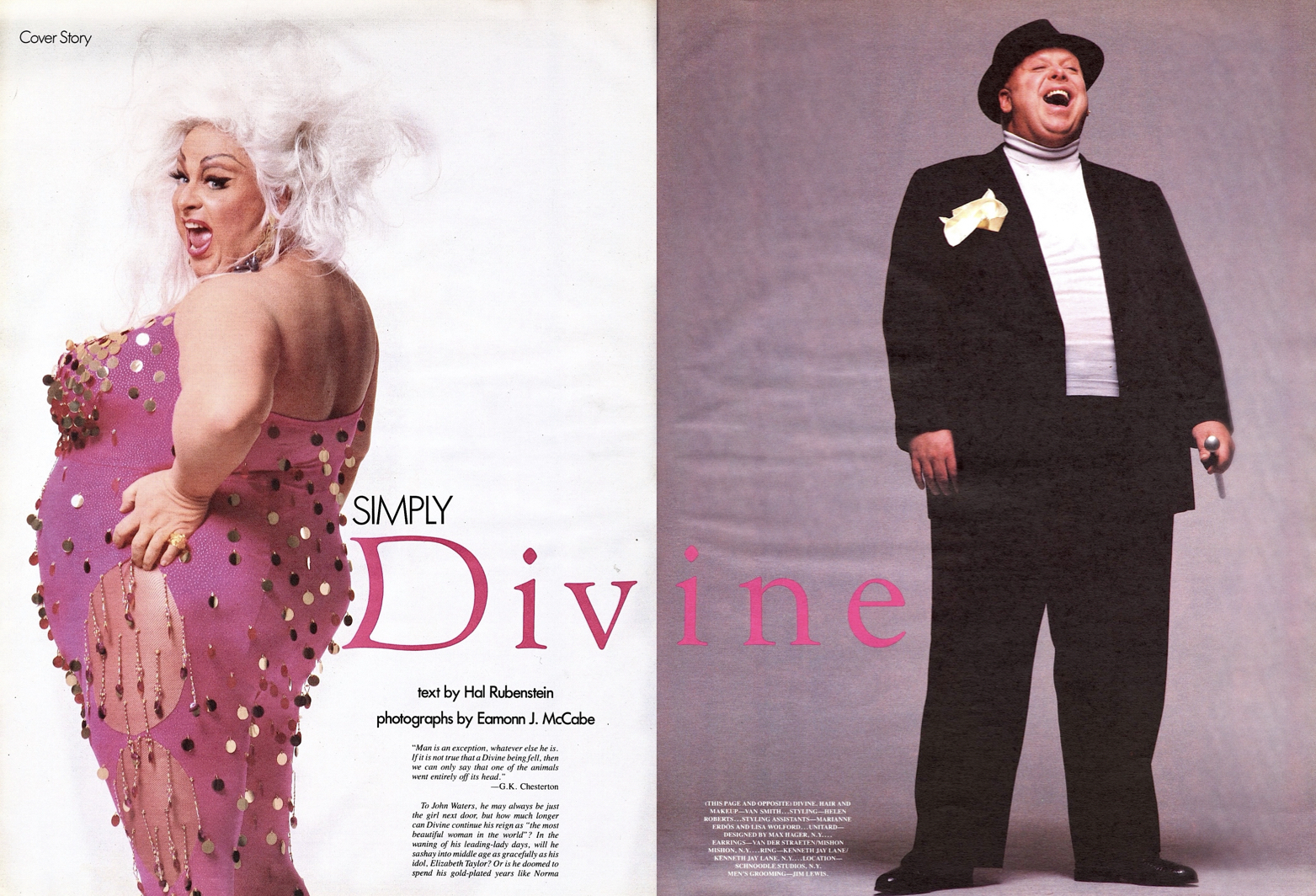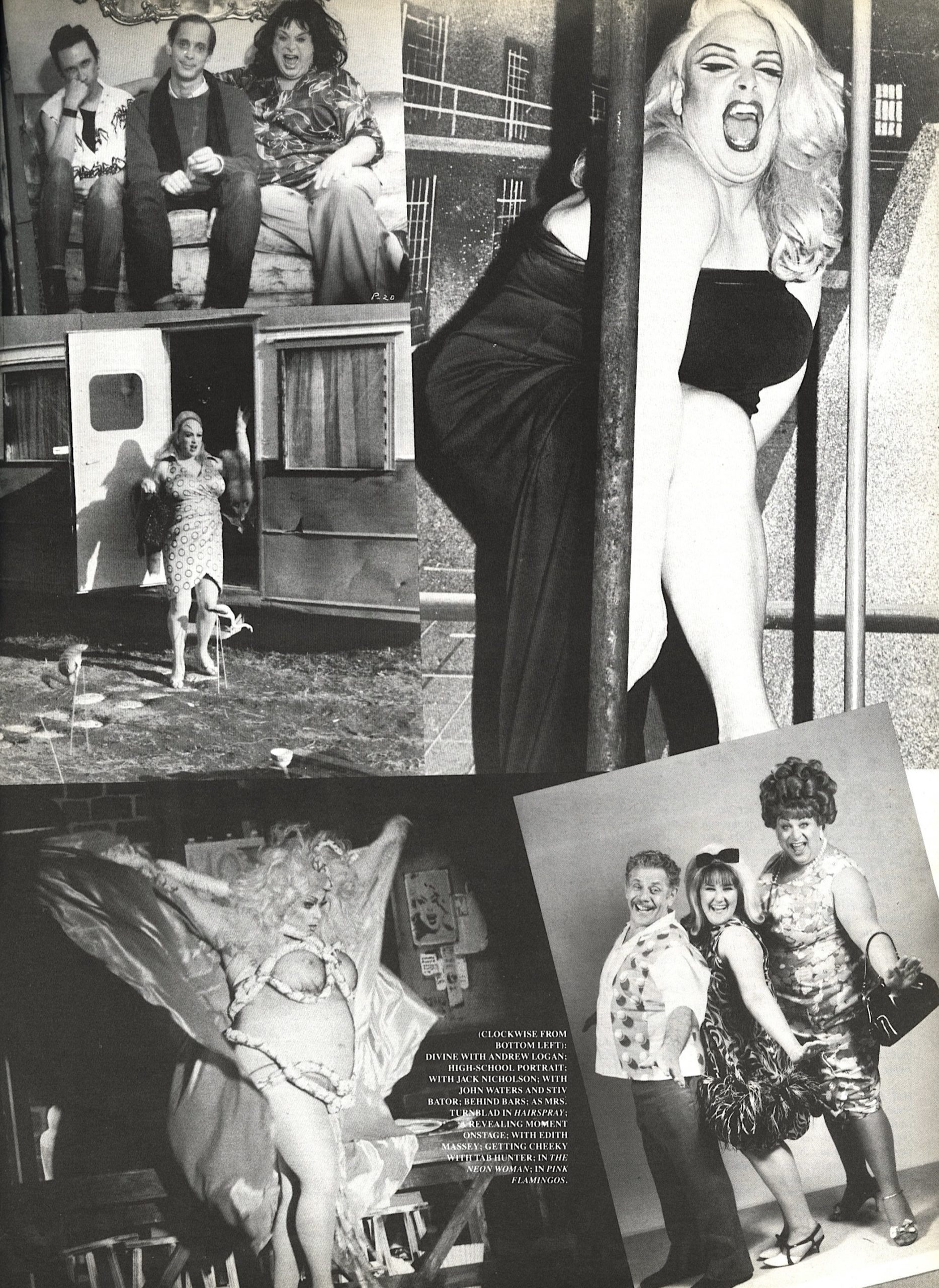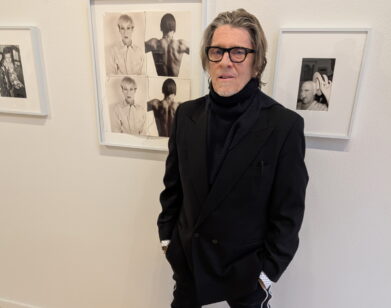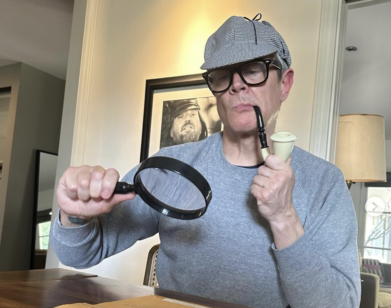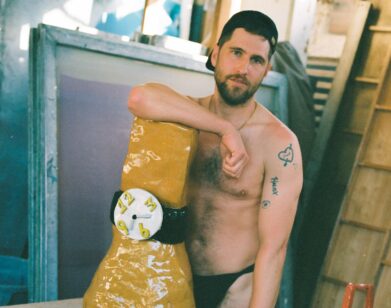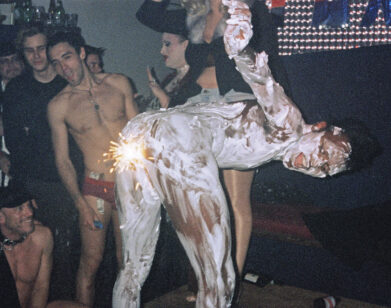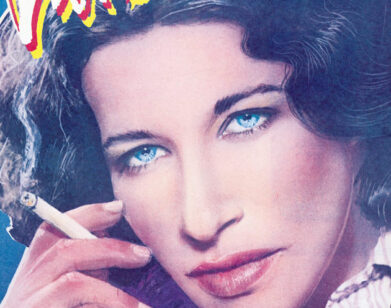thirstory
That Time Bette Midler Read the Drag Superstar Divine for Filth
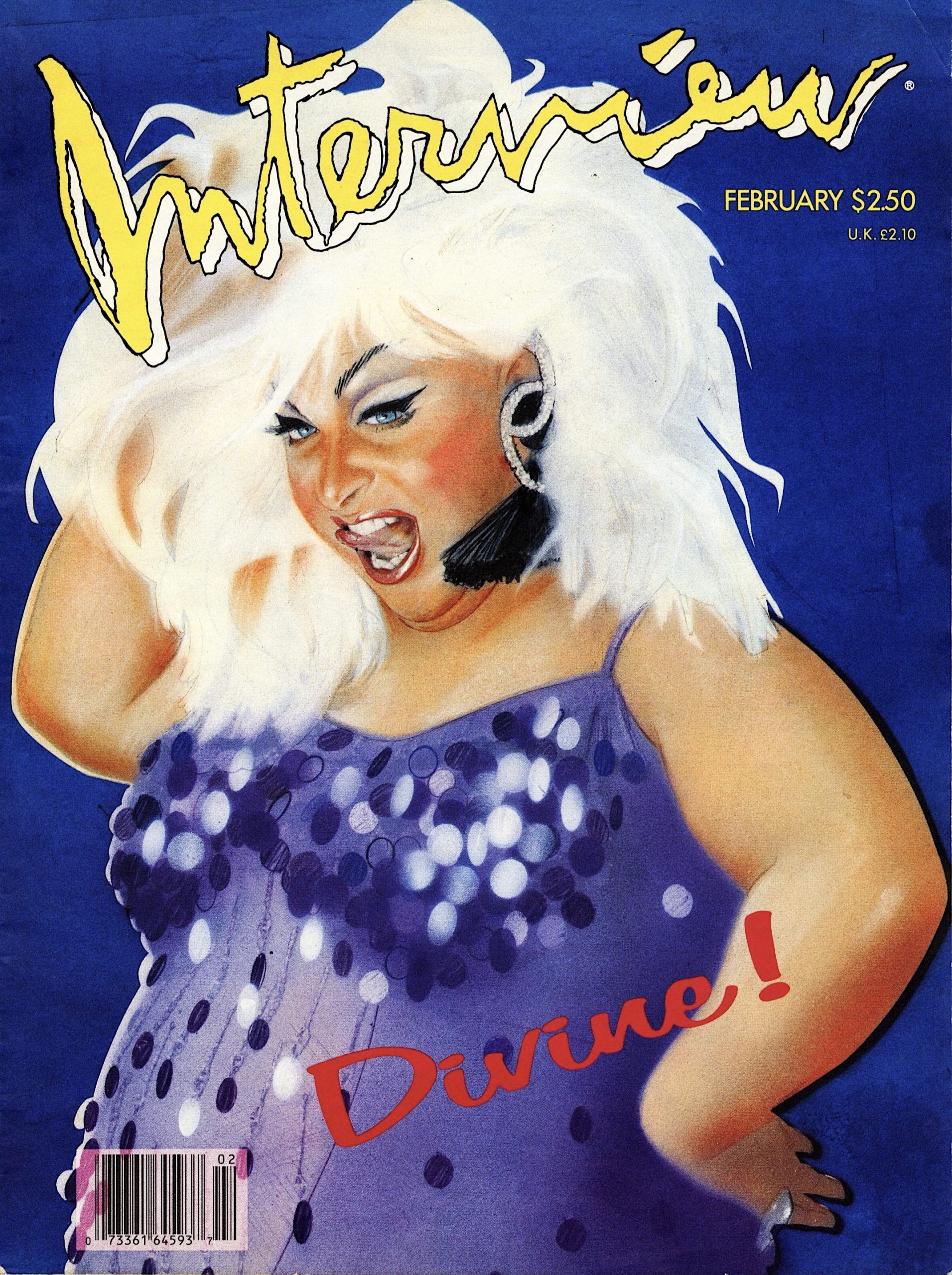
Welcome to Thirstory, where we whet your appetite with pages from the Interview archive that were almost too hot to print. In celebration of Pride month, we’re revisiting Divine, the drag superstar who covered our February 1988 edition, and who was dubbed by the outrageous performer John Waters as “the most beautiful woman in the world, almost.”
———
What’s black, white, and downright disgusting? The script of Pink Flamingos, the cult film classic written and directed by the one and only John Waters. Released in 1972, the film was, as its infamous tagline proclaims, “An Exercise in Poor Taste.” Toeing the ever-so-thin line between crass and camp, Pink Flamingos centers on a battle royale among the filthiest townies of Phoenix, Maryland. The lowest of them all? Divine, of course. The alter ego of actor Harris Glenn Milstead, the character Divine was brought to life in the 1960s, but it wasn’t until the debut of Pink Flamingos that the drag star began to garner genuine acclaim for her acting chops. As Divine told Interview in 1988, “Pink Flamingos was one filthy word after the other because it was a $12,000 movie playing up against Superman, which cost $40 million [to make], and something had to be done to get us noticed. It was a gimmick.”

Though the film’s foulmouthed dialogue and raucous plot may have been a tool to boost ticket sales, Divine’s scene-stealing talent was no ploy; it wasn’t long before she became the darling of the underground film scene. Not everyone was overjoyed by Divine’s burgeoning recognition, however. In 1970, Bette Midler, then 24, had a regular gig at a gay bathhouse on the Upper West Side where she sang, danced, and dubbed herself with the stage moniker, “Divine.” Four months following the release of Pink Flamingos, Midler included the self-anointed nickname in her debut album title, “The Divine Miss M”. Midler earned immediate acclaim for the record, but a certain competitive spirit arose in the budding chanteuse when she learned that an equally fabulous and outrageous performer was earning their stripes under the pseudonym “Divine.”

In the conversation that accompanied Divine’s February 1988 cover story, the performer recalled a televised interview in which Midler read her for filth: “What bugs me most about Bette,” Divine recalled, “is that when she had her interview with Barbara Walters, she looked right in the camera and said, ‘I was the first Divine; I just want everyone to remember that.’” Divine continued her rant, expressing outrage at the claim; “I wanted to punch her right in the face. I have been Divine since 1962 when John [Waters] gave me that name. Was she even around then? Isn’t it enough to be Bette Midler? God knows she is more famous and makes more money than I do!”
But all’s well that ends well: Divine concluded her interview with grace, professing her love and admiration for Midler like a true sister of the stage. So, in the midst of Pride month, what’s the harm in revisiting a little shade between two gay icons?
